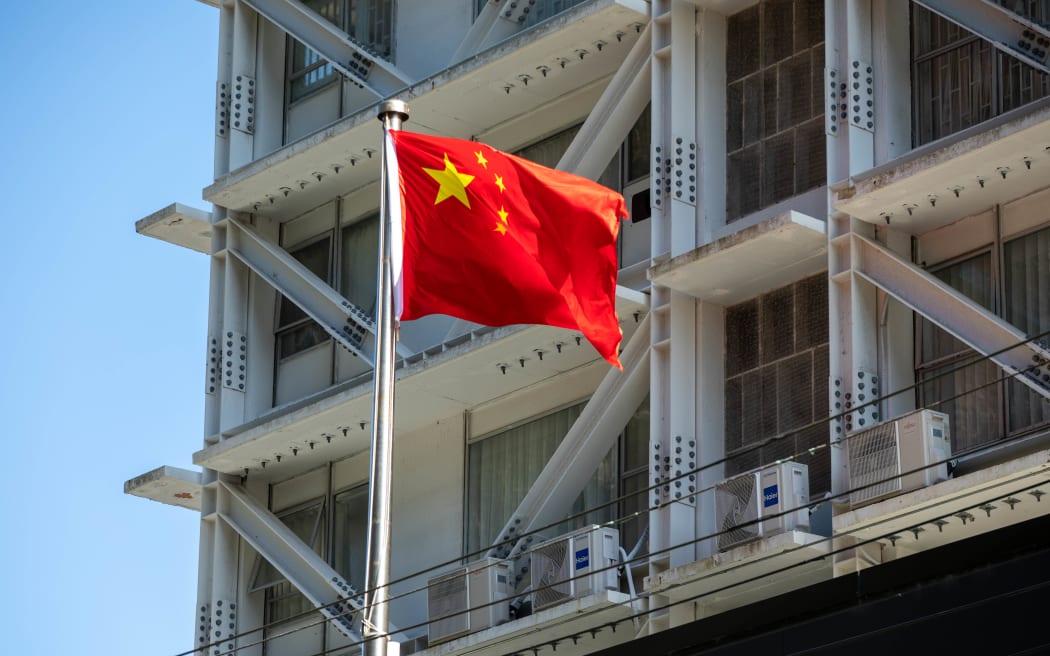Politics
New Zealand Intelligence Agency’s Report Sparks Concerns Over China

New Zealand’s top intelligence agency, the Security Intelligence Service (NZSIS), released its third annual Security Threat Environment report on October 5, 2023. The report indicates a deterioration in the security landscape, highlighting foreign interference as a growing concern. It specifically identifies China as the “most active” state involved in such activities, alongside other threats including espionage and violent extremism.
The report warns that New Zealand is currently “facing the most challenging national security environment of recent times.” It emphasizes the geopolitical instability resulting from the competition between major powers, particularly between Washington and Beijing. In this context, the NZSIS highlighted organizations like China’s United Front as contributors to foreign interference in the country.
While the report called attention to these significant threats, community leaders urged caution against stigmatizing Chinese New Zealanders. Richard Leung, a prominent leader in the Chinese community based in Auckland, acknowledged the importance of taking the NZSIS findings seriously. He stated, “It’s crucial that all communities in New Zealand, including Chinese New Zealanders, are aware of the risks. However, we must avoid making assumptions or stigmatizing any group.”
Leung expressed reassurance that government agencies are actively monitoring foreign interference activities. He advised businesses to remain vigilant regarding legal and security implications, urging them to seek professional advice and practice due diligence in their international engagements.
Paul Chin, the national president of the New Zealand Chinese Association (NZCA), echoed Leung’s sentiments. He emphasized the importance of protecting national interests without marginalizing Chinese New Zealanders, who are integral members of the country’s diverse society. Chin stated, “NZCA supports informed, respectful conversations that preserve both security and inclusion.” He also cautioned against labeling community engagement efforts as malicious, noting that not all activities targeting Chinese communities are orchestrated.
The Chinese Embassy in New Zealand responded to the NZSIS report, describing it as “rife with unfounded speculation” and accusing it of distorting facts. The embassy’s statement asserted that the report was saturated with ideological bias and a Cold War mentality. It called for New Zealanders to make their own judgments and not be swayed by “forces with ulterior motives.”
Academics have also weighed in on the matter. Anne-Marie Brady, a professor of political science and international relations at Canterbury University, emphasized the need for New Zealanders to be informed about the national and external security environment. She praised the government’s efforts to share information with the public, stating, “An informed society is a resilient society.” Brady encouraged the business community to utilize the security advice from the NZSIS when engaging with Chinese entities.
In an interview on October 5, 2023, NZSIS director-general Andrew Hampton reminded New Zealanders of the importance of caution in international engagements. “We’re not saying don’t engage internationally,” Hampton clarified. “What we’re saying is to be aware that such engagement sometimes carries risks.” He advised individuals to verify the identities of those they meet and to consider any potential connections to foreign states.
The NZSIS report serves as a critical reminder of the complex security dynamics at play in New Zealand and the broader Indo-Pacific region. As the country navigates these challenges, community leaders and experts call for a balanced approach that ensures national security while fostering inclusion and understanding among all residents.
-

 World1 week ago
World1 week agoPrivate Funeral Held for Dean Field and His Three Children
-

 Top Stories2 weeks ago
Top Stories2 weeks agoFuneral Planned for Field Siblings After Tragic House Fire
-

 Sports3 months ago
Sports3 months agoNetball New Zealand Stands Down Dame Noeline Taurua for Series
-

 Entertainment3 months ago
Entertainment3 months agoTributes Pour In for Lachlan Rofe, Reality Star, Dead at 47
-

 Entertainment2 months ago
Entertainment2 months agoNew ‘Maverick’ Chaser Joins Beat the Chasers Season Finale
-

 Sports3 months ago
Sports3 months agoSilver Ferns Legend Laura Langman Criticizes Team’s Attitude
-

 Sports1 month ago
Sports1 month agoEli Katoa Rushed to Hospital After Sideline Incident During Match
-

 World2 weeks ago
World2 weeks agoInvestigation Underway in Tragic Sanson House Fire Involving Family
-

 Politics2 months ago
Politics2 months agoNetball NZ Calls for Respect Amid Dame Taurua’s Standoff
-

 Top Stories2 weeks ago
Top Stories2 weeks agoShock and Grief Follow Tragic Family Deaths in New Zealand
-

 Entertainment3 months ago
Entertainment3 months agoKhloe Kardashian Embraces Innovative Stem Cell Therapy in Mexico
-

 World4 months ago
World4 months agoPolice Arrest Multiple Individuals During Funeral for Zain Taikato-Fox





















